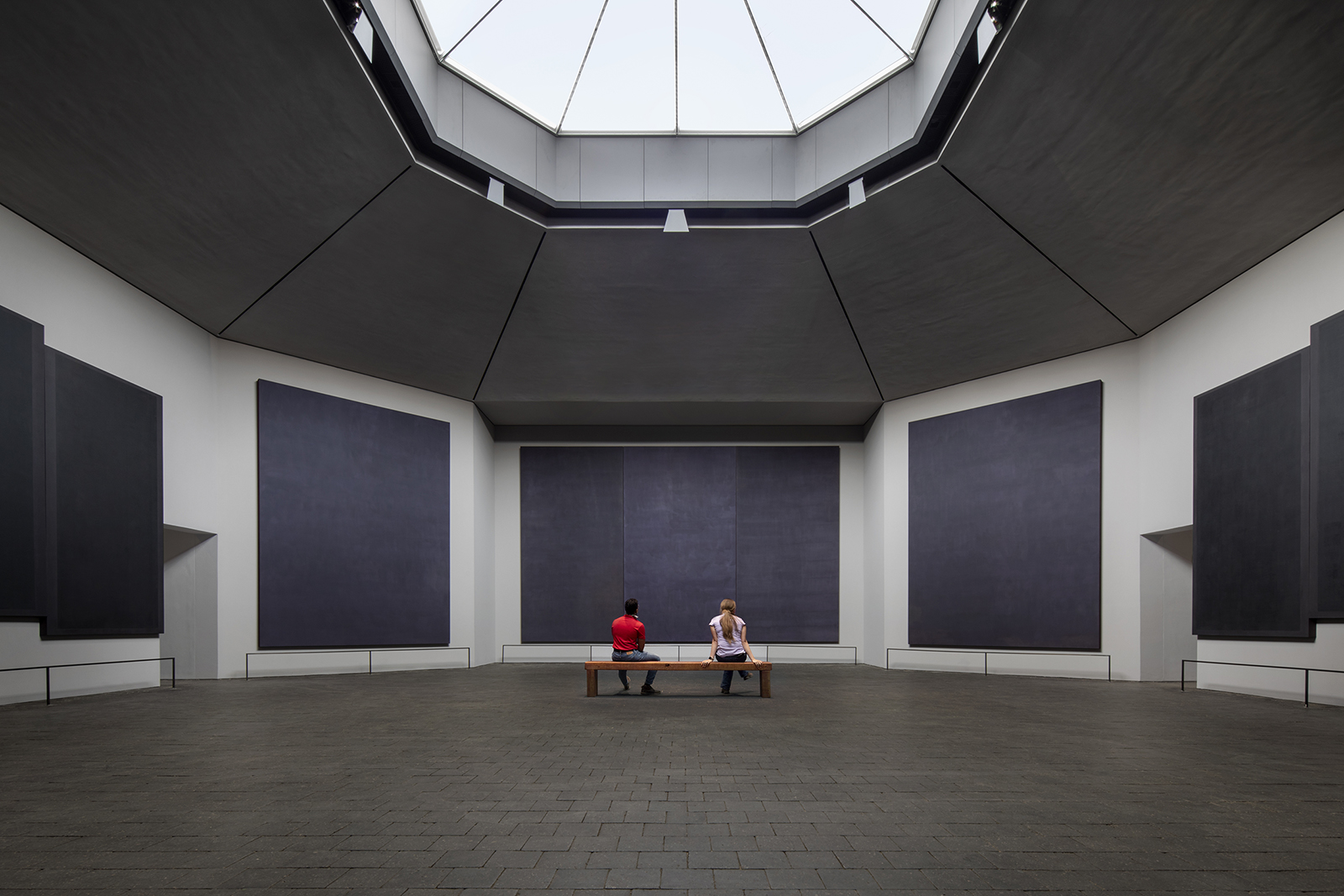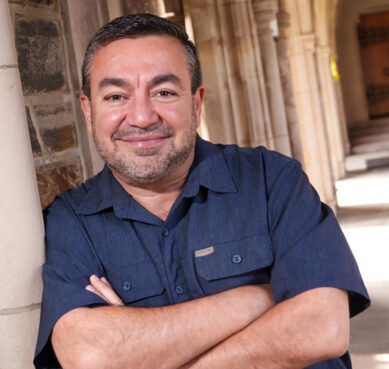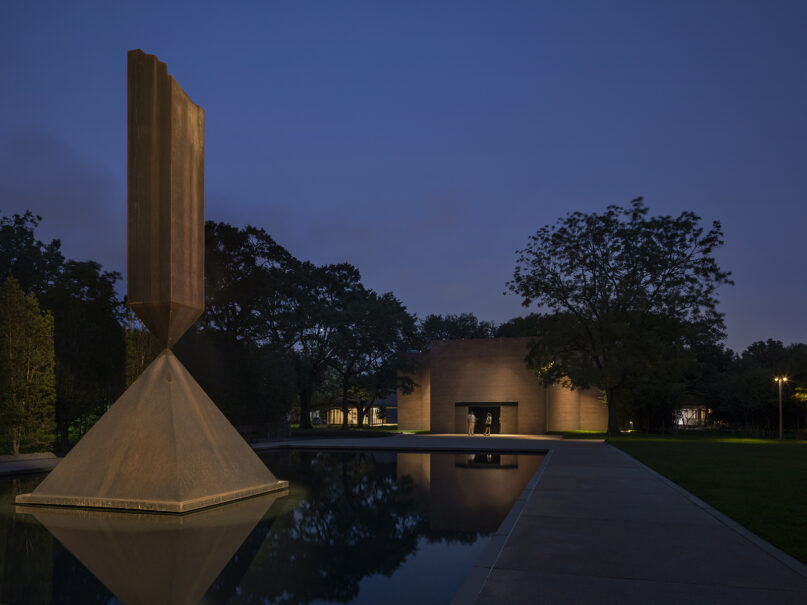
(RNS) — Abdullah Antepli, a globe-trotting interfaith champion and prominent Muslim leader, has been chosen as the new president of the Rothko Chapel, the Houston ecumenical sanctuary.
Antepli, who has held a variety of positions at Duke University for the last 17 years, said he was drawn to the possibility of developing the chapel’s mission as a beacon for cross-religious and cross-cultural dialogue during a time of intense polarization.
The 54-year-old octagonal chapel houses 14 black and plum-hued-murals created by American artist Mark Rothko. It is listed on the National Register of Historic Places and includes a reflecting pool outside with a sculpture by Barnett Newman dedicated to the Rev. Martin Luther King Jr. The chapel draws about 100,000 visitors a year as a site for quiet reflection, but with Antepli’s hiring, it is expected to ramp up interfaith training programming.
“I believe Rothko can and must be one of those places where intellectuals and future leaders can turn to to create spaces and momentum that model and exemplify how radically different opposing, seemingly irreconcilable differences can be discussed, even though disagreements are still there,” said Antepli, who begins the role Sept. 1.

Imam Abdullah Antepli. (Photo courtesy of Duke Divinity School)
The 52-year-old imam, a native of Turkey, was hired by Duke in 2008, as its first Muslim chaplain at a time when many universities didn’t have one. Later, he became the inaugural director of Duke’s Center for Muslim Life and the university’s chief representative of Muslim affairs.
RELATED: Texas Rep. James Talarico calls Democrats’ redistricting exodus an act of faith
He is the only imam to twice lead opening prayer in the United States House of Representatives. Under presidents Barack Obama and Joe Biden, Antepli served as an adviser to the State Department on various faith-based peace initiatives. In 2019, he joined the Sanford School of Public Policy and last year became director of Polis: Center for Politics, both at Duke.
He also has cultivated strong interfaith ties to the American Jewish community. He served as co-director of the Muslim Leadership Initiative at the Shalom Hartman Institute, alongside American-Israeli author Yossi Klein Halevi.
Antepli said he has a hard time keeping still. “My wife tells me I talk in my sleep,” he said. But when he visited the Rothko Chapel in May, he just sat there in quiet contemplation for an hour.
“Something about that space, it just captures you, grabs you from the inner part of your soul that you didn’t even know existed,” he said. “That’s when I said, if this place slows me, an extrovert, it could do something because part of what we need to do is to slow people down.”
Back in 2017, the chapel, near the University of St. Thomas in Houston’s Montrose neighborhood, set a goal of raising $42 million for on-site projects. About $29 million of that goal was raised by its previous executive director David Leslie.
The chapel was commissioned by John and Dominique de Menil in 1964. The Catholic couple, who emigrated from France during World Word II, were heirs to the Schlumberger Limited oil equipment fortune. They settled in Houston and became avid art collectors.

The Rothko Chapel Plaza and the Suzanne Deal Booth Welcome House, beyond on the left, in Houston. (Photo © Elizabeth Felicella)
The chapel is not used for religious services. It has no pulpit or religious iconography. Instead, it is a place of contemplation with a mission of cultivating dialogue and advocating for peace and justice. It is supported through a diverse mix of foundation grants, public arts funding and individual contributions.
Under Antepli’s leadership, the chapel is expected to lift its profile by training future leaders in cultivating conversation across differences.
“What I’m envisioning is to capture this mystical, almost magical, almost seductive, intoxicating energy of the chapel and turn (it) into educational programs for future leaders,” Antepli said.

Suzanne Deal Booth Welcome House from the new courtyard on its new North Campus in Houston. (Photo © Elizabeth Felicella)
RELATED: Nonreligious chaplains are changing how we understand spiritual care
